Search Results for: Monkeys
Skip to resultsCan’t find what you’re looking for? Visit our FAQ page.
2,691 results for: Monkeys
-
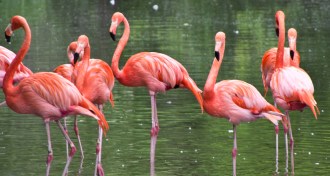 Life
LifeNew tree of life confirms strange history of birds
A genetic analysis supports some odd groupings in the bird tree of life, showing a lot of convergent evolution in avian history.
By Susan Milius -
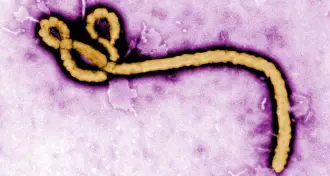 Health & Medicine
Health & MedicineEbola vaccine shows no major side effects in small study
An experimental vaccine against Ebola virus has tested well in people, researchers report.
-
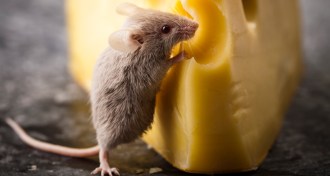 Health & Medicine
Health & MedicineAdd high-fat diet to the ‘don’t’ list for pregnant moms
There’s always controversy over what to eat while pregnant. Four animal studies at this year’s Society for Neuroscience meeting bring together negative effects of high-fat diets.
-
 Health & Medicine
Health & MedicineUncommon malaria spreading in Malaysia
Malaria parasite’s jump from monkeys to people seems aided by deforestation in Malaysia.
By Nathan Seppa -
 Health & Medicine
Health & MedicineThe kids will be all right
Children are generally as resilient as adults when it comes to acute trauma, and studies suggest that a little stress and exercise might help kids cope with disasters.
-
 Health & Medicine
Health & MedicineMini stomachs grown in lab
Clumps of human gastric cells could help researchers study stomach diseases.
By Meghan Rosen -
 Health & Medicine
Health & MedicineFeedback
Readers discuss methods to prevent sepsis and whether genes are thrifty, while Tina Saey clears up some confusion regarding Ebola's airborne status.
-
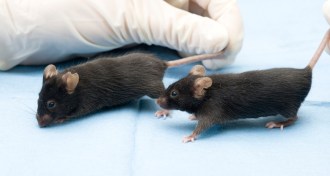 Science & Society
Science & SocietyIs NIH policy the best way to sex equality in studies?
A new NIH policy will require females to be studied alongside males in preclinical studies. The mandate comes with both opportunities and challenges, and little funding.
-
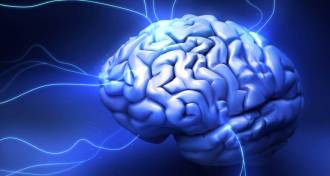 Psychology
PsychologyBalancing the excitation and inhibition tightrope in depression
A new study looks at how a balance of positive and negative inputs in the lateral habenula might relate to disappointment and depression.
-
 Health & Medicine
Health & MedicineTwo-part vaccine protects monkeys from Ebola
An experimental vaccine protected macaques from infection with the Ebola virus up to 10 months after receiving the two-shot regimen.
By Nathan Seppa -
 Animals
AnimalsA brief history of animal death in space
The Russian “sexy space geckos” join a long list of creatures that have died after humans sent them into space.
-
 Health & Medicine
Health & MedicineExperimental herpes drug outperforms first-line med
An experimental treatment for genital herpes suppresses the viral infection better than the standard drug, but animal tests raise concerns about side effects.
By Nathan Seppa